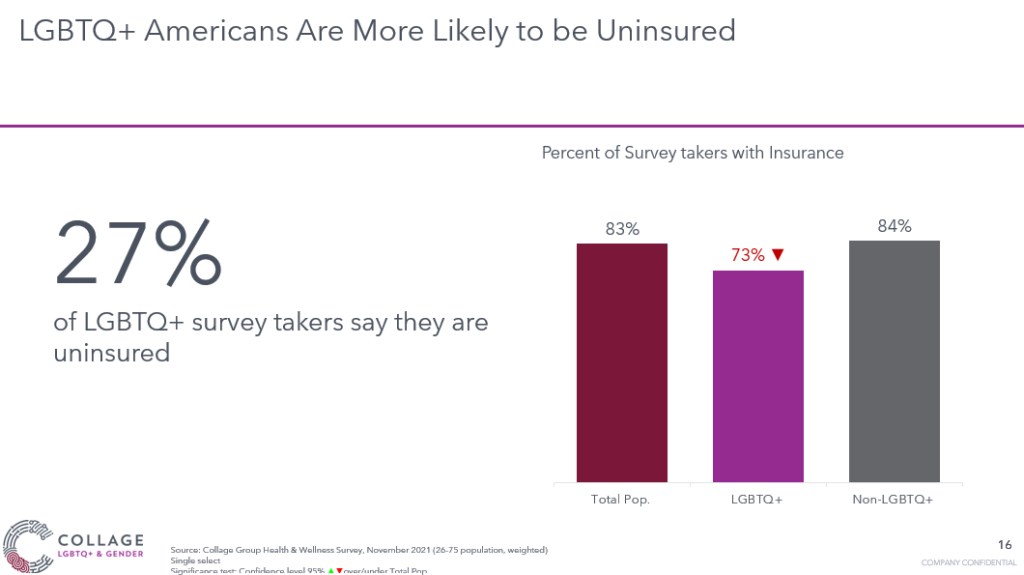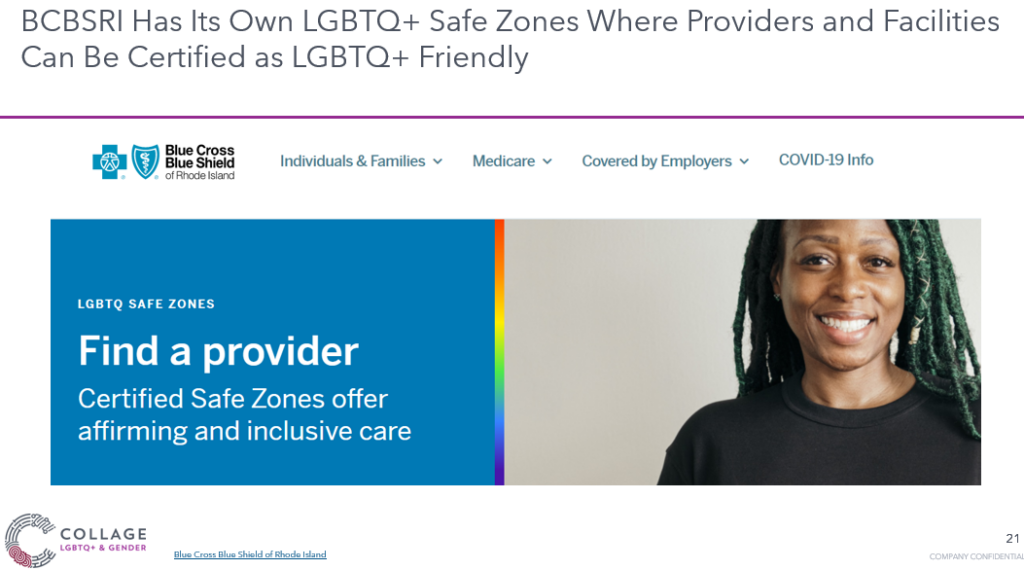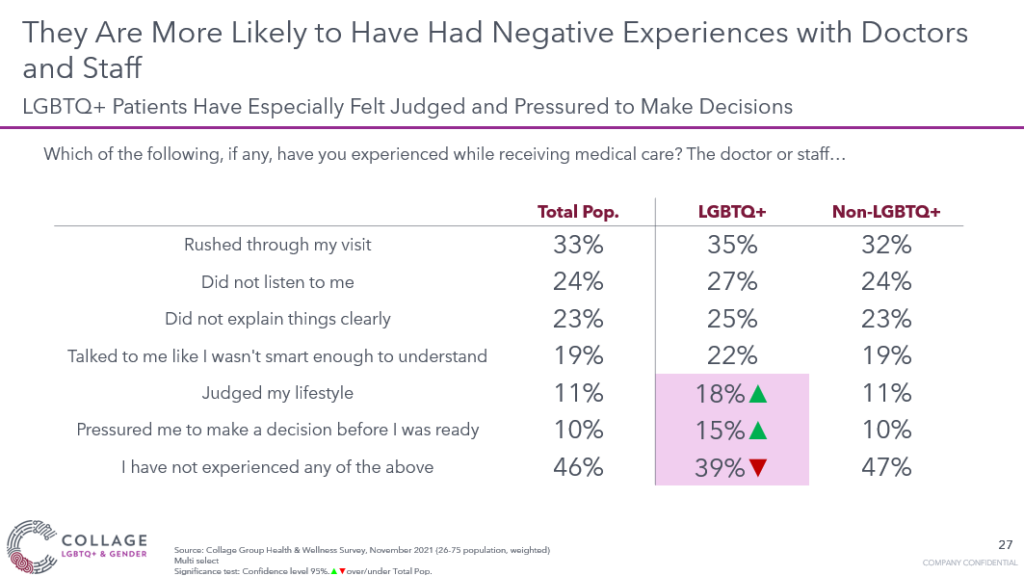Health and Wellness Across Sexual Identities

LGBTQ+ Americans have unique perspectives, needs, and experiences related to healthcare that brands must understand. Keep reading for key insights, a downloadable deck, and webinar replay that will help your brand or organization better understand and connect with these segments.
Read on and fill out the form for an excerpt from our Health and Wellness Across Sexual Identities presentation.
Rapid changes in societal norms over the past several years are continuing to pave the way for a more inclusive and welcoming America. The greater acceptance many young people now experience affords an opportunity to openly identify as LGBTQ+ with less risk for social stigma and discrimination. As a result, we continue to see growth in the number of Americans who identify as LGBTQ+. To win in this constantly evolving space, brands and organizations must understand LGBTQ+ Americans’ unique health-related needs and how these impact their engagement with health insurers and providers.
Collage Group’s 2021/2022 Health & Wellness Study leverages data captured from more than 3,500 Americans to help brands understand how health-related attitudes and behaviors differ by sexual identity. Our research reveals how an emerging consumer mindset impacts Americans engagement with both the health insurance and health care provider space. We explore barriers to insurance coverage, drivers and barriers to trust and satisfaction, provider preferences, receptivity to provider advice, and more.
Take a look at a few key insights and implications:
#1. The LGBTQ+ population is less likely to have health insurance than others. Affordability issues and distrust in health care have led to lower insurance rates among LGBTQ+ Americans. Position yourself as a partner in their health journey and prove yourself trustworthy by offering targeted services to address their unique needs

Best Practice: Blue Cross Blue Shield of Rhode Island is addressing LGBTQ+ Americans’ barriers to coverage with an easy to find resource page on their website to connect patients with providers that are inclusive and LGBTQ+ friendly.

#2: LGBTQ+ Americans are less satisfied with their current medical care in part because of past negative experiences. More poor interactions with health care providers leads to avoiding care in the future and, ultimately, poorer health outcomes (see the full presentation for supporting data and details on the LGBTQ+ experience with health care).

Contact us to learn more about how you can gain access to these diverse consumer insights and much more in our cultural intelligence engine.